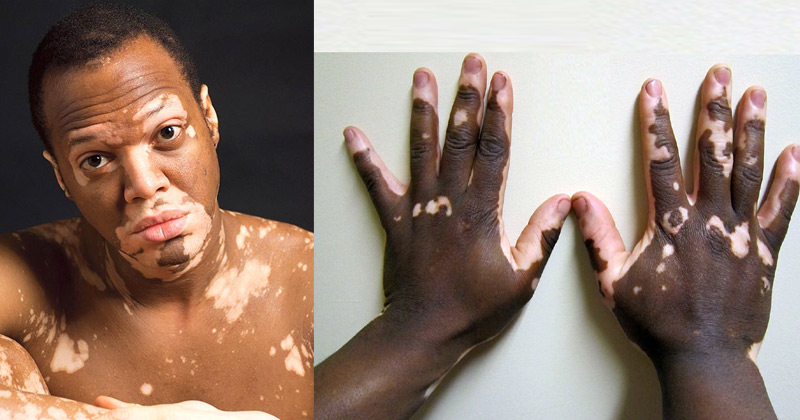If white spots form on the skin, it may be white spot disease. Although this skin disease is harmless to health, it can be a major Psychological burden for those affected. Though there is no defined treatment for the white spot disease, there are some measures that are extremely helpful to patients. Let’s learn about vitiligo and its treatment.

Pigment disorders are characterized by local or extensive changes in the color of the skin, which are more or less colored than normal. Different manifestations of hyperpigmentation (increased pigmentation) and hypopigmentation (reduced pigmentation) can be distinguished. Hyperpigmentation includes, for example, freckles, age spots, and liver spots. The hyperpigmentations include fire marks and white spot disease.
White spot disease which is medically called Vitiligo is a non-contagious pigment disorder of the skin in which white spots form on the skin. In some places on the body, the brown skin pigment melanin is lost. The causes of this pigment disorder are not exactly known. In addition to a hereditary predisposition, a dysregulation of the immune system may play a role.
Characteristics of White Spot Disease – Vitiligo
The white spot disease occurs quite frequently and increasingly in dark-skinned people. Vitiligo is recognized by white patches on the skin. They can be of various sizes and can usually be found on these parts of the body:
- Face
- Neck
- Fingers And Back Of The Hand
- Navel
- Elbow
- Knee
- Genital Area
In very rare cases the entire surface of the skin is affected but it is not very common.
Causes of the Pigment Disorder – Causes of Vitiligo
The exact cause of white spot disease is not known. However, there is a connection with autoimmune diseases such as diabetes mellitus and certain thyroid diseases. Severe sunburns, stress, and skin damage such as neurodermatitis or psoriasis can make the white spot disease worse. Since family members are affected by the disease in 30% of cases, the genetic aspect plays a major role. But vitiligo is not contagious in any form.

Suggested Read: Hair loss: Reasons and Treatments
Therapy Options for Vitiligo – Treatment of Vitiligo
It is only possible to treat the symptoms and risks of this pigmentation disorder. It is particularly important that the affected skin areas are protected from sunburn.
The following measures can help treat the symptoms of vitiligo:
Cosmetic Products
There are cosmetic preparations such as creams that can be used to make up and cover the affected areas. It is to ensure that the spots are invisible to others but does not help with the treatment of the disease.
Irradiation With Ultraviolet Light
Irradiation with UV light for several weeks can bring an improvement in the skin. In some patients, the white areas may begin to pigment again. UV light radiation therapy is one of the most effective known treatments for vitiligo because there is a higher probability that the skin may go back to normal.
Bleaching Agents
In the case of heavy stains, the darker areas of the skin can be lightened by an experienced doctor using bleaching agents with the active ingredient hydroquinone.

Surgical Re-pigmentation
In special cases, there is also the possibility of re-pigmentation by surgical means. To do this, the body’s color pigments are removed, grown, and transplanted onto the affected areas.
Psychotherapy
Since white spot disease is a purely cosmetic problem, many sufferers suffer from psychological consequences. Supportive psychotherapy can help you get a grip on depression or anxiety disorders.
Suggested Read: Home Remedies for Skin Allergies
There are effective methods for the treatment but there is no established formal treatment methodology. People who suffer from vitiligo must also understand that it is a disease that usually does not relate to an underlying disease. Also, there is a chance that it might spread to other areas but with a healthy diet and lifestyle, it can be prevented.


